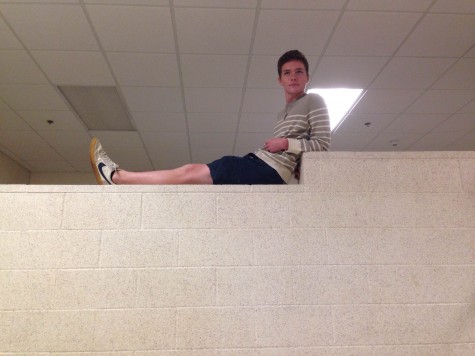Scheduled to change: work on bell schedule continues
October 20, 2015
Discussion of a schedule change is still circulating around administration, continuing where they left off at the close of last year.
After no new schedule emerged from meetings held last June, teachers and administrators decided to put the conversation on hold for the summer. Proposed schedules from last year included a two week rotating schedule and a block schedule.
“There was a decided preference for the rotating schedule,” Principal Tom Mead said. “We want to honor that, but we have to be mindful of the transitional details that have to be worked out.”
Continuing with the ideas from last year, Assistant Principal Paul Didomenico offered to head any further discussion of schedule change. Didomenico has been meeting with a group of teachers since school began to work on changes to the proposed schedules.
“We’ve gone past the brainstorming stage, and now we’re in the process of fine tuning one of those options [from last year],” Didomenico said.
The next goal of the committee is to discuss the schedule change with a group of teachers outside of the committee, and then to meet with a group of student leaders to get student input on the changes as well.
“I think people here deserve to be able to have their ideas heard and their reactions heard,” Didomenico said. “You can’t satisfy everyone in these things, but you still want to go about doing it in the best possible way.”
Of the schedules proposed, the rotating two week schedule and the current schedule are the two that hold the most merit. A rotating schedule would have classes meet at different times of day to deal with levels of fatigue in students in certain classes more than others; it gives students exposure to every class at their peak performance time.
“The idea is that classes that meet in the morning don’t always meet first thing,” DiDomenico said.
Initial issues arose with AP Science labs, the Tiny Tomahawks program, and part time teachers being effected by a rotating schedule. The issues with AP Science labs and Tiny Tomahawks have since been resolved by the committee working on the schedule.
“I got involved because I wanted to make sure that we could still keep a viable Tiny Tomahawks programs,” said Applied Arts and Technology Department Chair Mary Beth Pappas. “[The proposed schedule] has been tweaked a little bit so we could accommodate the Tiny Tomahawks next year.”
Beyond the resolved issues, administrators are continuing to work on a schedule change that will benefit as many groups of people as possible. Prolonged efforts to bring around change are due to the committee’s attention to detail; consistent work is being done to change the schedule system in the best way possible.
“Change is good as long as it’s the right change,” Didomenico said. “A well thought out, well timed change that’s communicated to people effectively, that’s the best approach.”









